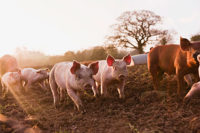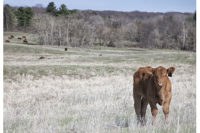The egg has always generated conversation, beginning with its debatable role preceding the chicken. Recent news and legislation advance the chicken-egg relationship further by defining space requirements and additional welfare considerations for egg-laying hens and other farm animals.
Unfortunately, some important issues have been lost in the debate.
Many egg producers, retailers and consumers are concerned that mandating only one type of egg production as meeting humane standards could create serious issues. For example, mandating cage-free eggs as the only type of humane eggs could increase the cost of eggs to the point of being unaffordable for many people.
Consumers should have food choices that are safe, affordable and humane. American Humane Association certifies 90 percent of all cage-free eggs in the United States; however, we support — and certify — three kinds of egg production that meet rigorous humane standards, as defined by independent leading scientific experts.
Although cage-free eggs are one of the humane choices, the new enriched colony housing system provides a reasonably priced, humane alternative to conventional caged eggs. Other humane egg-production systems provide free range and pasture access for laying hens.
In each certified housing system, hens move about freely, engage in natural behaviors and have enrichments such as nest boxes, perches and scratch areas, allowing a chicken to be a chicken.
- Enriched colony housing provides a small flock of birds room to move about freely and express their natural behaviors. More and more farmers are converting from old cramped cages to this humane housing for hens as retailers and consumers expect higher animal-welfare standards.
- Cage-free systems give hens room to roam around on litter, elevated perches, nest boxes and areas to peck and scratch. Hens in cage-free housing may have access to the outdoors.
- Free-range and pasture systems provide birds with daytime access to outdoor areas. The hens have access to sheltered areas at night and during inclement weather. Eggs that have the American Humane Certified label “free-range” require at least one acre per 2,000 hens. Eggs that have the American Humane Certified label “Raised on Pasture” require at least two and a half acres per 1,000 hens. Pastures must be rotated regularly. Hens must be provided water, shade and shelter from predators and wild birds.
American Humane Association is the only animal-welfare organization certifying three different humane choices for eggs, recognizing that retailers and consumers should have humane egg choices that are not only safe and affordable, but ethical and defensible. We expect all producers who raise hens for eggs to prioritize the care of their birds in order to achieve the finest quality eggs.





Report Abusive Comment